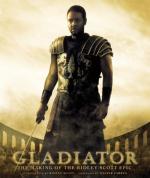|
This section contains 5,054 words (approx. 17 pages at 300 words per page) |

|
The huge size and grandeur of the public facilities that housed the Roman games reflected the fact that the Romans were great builders—overall the most prolific, efficient, and practical in the ancient world. Indeed, as the late, noted classical scholar Edith Hamilton pointed out, the true Roman artist was not the painter, sculptor, or poet, but the engineer. "Roman genius was called into action by the enormous practical needs of a world empire," she wrote. And Rome met these needs appropriately and magnificently by producing a vast network of roads for the swift transport of armies and trade goods; miles of aqueducts that supplied life-giving water to sustain hundreds of cities and towns; as well as great circuses for chariot racing and amphitheaters where gladiators and beasts fought and died.
The Romans did not invent roads, aqueducts, and games facilities...
|
This section contains 5,054 words (approx. 17 pages at 300 words per page) |

|




